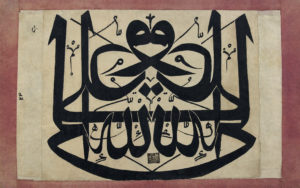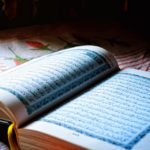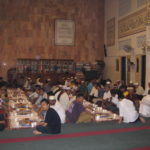The Sunni/Shia split has been the basis of endless debates over the years. Commentators have focused their strengths on sketching the characters of Hazrat Ali (as) and Hazrat AbuBakr (ra) and comparing the two personalities. However, the conventionally believed notion of the split being solely a political one is not true. The one concept that has distinguished Shia Islam from the Sunni counterpart is that of divinity’.
Sunni Muslims
Sunni Muslims have long held the belief that Prophet Muhammad (pbuh) failed to recognize the importance, and for that matter the necessity, to appoint a successor who could guide the Muslims whilst Islam was still in its infancy. There have been numerous instances where the apparent followers of Prophet Muhammad (pbuh) had failed to comply to the orders of the Holy Prophet while simultaneously claiming allegiance to the cause of the Prophet. It would be logically very inconsistent to determine that Prophet Muhammad (pbuh) would leave the all important decision of his successor in the hands of his followers who had displayed signs of wear and tear even during his lifetime. Muslims of all sects have established a consensus (or almost) that the message of the Prophet was divine. It was communicated to the Prophet from the Almighty via Angel Gabriel. The element of contamination was definitely out of question and indeed the word of the Prophet provided for the best of the teachings.
Transitively speaking, the Sunnis have established that the element of divinity ceased to exist right after the death of the Holy Prophet Muhammad (pbuh). In other words Islam fell to the bearings of hearsay after just twenty-three years of its advent! The direct contact that continued between the Almighty and the Prophet Muhammad (pbuh) was abruptly ended and with it the possibility of obtaining a divine solution to a problem arising after the passing away of the Prophet. Islam was ironically left to be spread by individuals who had themselves displayed conflicting characters during and after the lifetime of the Prophet.
Shia Muslims
Shia Muslims, unlike their Sunni brothers, put Divinity in religion at a higher level of importance. Shias believe that Islamic teachings can only be accredited if they are sourced from either the Prophet or his appointed’ authorities. Leaving the imparting of religion in the hands of several unsigned individuals is a perfect recipe for anarchy! Divinity is thus deeply linked with the appointment’ of a successor and to ensure legitimacy in Islam. A leader appointed by the Prophet will give consistent rulings relative to the message brought by the Holy Prophet and there would be a non-existent chance of having a confused bunch of followers flooded with contradicting teachings and varied opinions.
 While details of close companions of the Holy Prophet (pbuh) disagreeing amongst themselves and evidence of some popular elements not complying with the orders of the Prophet have been referenced profusely in several books of history. We will be overlooking those to focus on the element of divinity and its role in defining the origin of the Sunni/Shia split.
While details of close companions of the Holy Prophet (pbuh) disagreeing amongst themselves and evidence of some popular elements not complying with the orders of the Prophet have been referenced profusely in several books of history. We will be overlooking those to focus on the element of divinity and its role in defining the origin of the Sunni/Shia split.
The issue of successorship is thus not that of a political nature but instead, it is the death of divinity’ that is implied by having no successor to the Holy Prophet (pbuh). The fact that religious authority was vested in man-elected individuals early on in the career of Islam has resulted in the aggravation of sectarian divides. The origin of the Sunni and Shia split is thus the acceptance or rejection of divinity.






